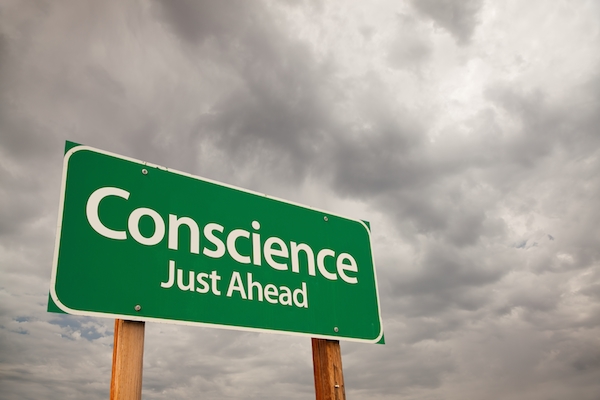
Why should we respect conscientious objectors?
As Canada prepares to legalise euthanasia, an influential bioethicist dismisses appeals to conscience

A powerful debate over conscientious objection is brewing in Canada. The Canadian parliament is drafting a law to implement a Supreme Court order to allow assisted suicide and euthanasia. Some doctors fear that they will be forced to perform the procedures or refer patients to more compliant doctors.
Writing in the Canadian Family Physician, Dr Nancy Naylor, a general practitioner, declared that she had decided to retire:
“I refuse to let anyone or any organization dictate my moral code. For this reason I am not renewing my licence to practice medicine . I have practiced full scope family medicine , including palliative care for the past 37 years and solely palliative care for the past 3 years. I have no wish to stop. But I will not be told that I must go against my moral conscience to provide standard of care.”
Appeals to conscience are emotionally powerful. But do doctors have a right to appeal to their “moral conscience” to refuse to carry out legal procedures?
Today one of Canada’s most influential bioethicists and a colleague present the case for ignoring conscience claims in the Journal of Medical Ethics. Professor Udo Schuklenk, who is also co-editor of the journal Bioethics, and Ricardo Smalling, both of Queen’s University in Ontario, contend that “Forcing patients to live by the conscientious objectors’ values constitutes an unacceptable infringement on the rights of patients.”
In a nutshell their argument is that medical professionals have made a contract with society. In return for a lucrative monopoly on the provision of an essential service, patients have a right to demand that they provide socially acceptable and legal services. By withholding their services, they are exploiting the power differential between them and patients. They cite American bioethicist R. Alta Charo, who says:
“claiming an unfettered right to personal autonomy while holding monopolistic control over a public good constitutes an abuse of the public trust—all the worse if it is not in fact a personal act of conscience but, rather, an attempt at cultural conquest”.
In Schuklenk and Smalling’s view, conscientious objection, based as it is on indemonstrable premises, is arbitrary and fickle. “Today it might be abortion and assisted dying, tomorrow it might be the use of the tools of personalised medicine or something else altogether.”
There might be a psychological cost to doctors whose conscientious beliefs are not accommodated by the state, but denying services to patients in need of services like abortion or euthanasia is more costly still. If a doctor feels (like Dr Naylor) uncomfortable, he or she should leave the profession. Ultimately, what matters is what society has declared to be legal, not the inscrutabale dictates of an individual conscience. Quoting the great British 17th century philosopher Thomas Hobbes, Schuklenk and Smalling argue: “the law is the public conscience by which [a citizen] hath already undertaken to be guided”. If the law changes, consciences must change as well. Otherwise there would be anarchy.
This is a stimulating essay which is sure to be influential for the future of conscientious objection in Canada.
https://www.bioedge.org/images/2008images/TH_conscience_454535.jpg
Creative commons
https://www.bioedge.org/images/2008images/76_2731812.jpg
Canada
conscience
conscientious objection
euthanasia
- How long can you put off seeing the doctor because of lockdowns? - December 3, 2021
- House of Lords debates assisted suicide—again - October 28, 2021
- Spanish government tries to restrict conscientious objection - October 28, 2021
